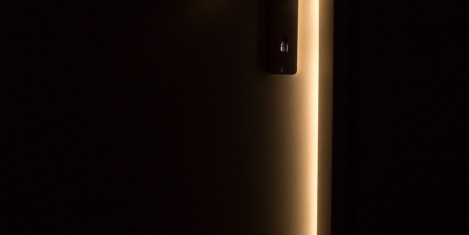To provide the best experiences, we use technologies like cookies to store and/or access device information. Consenting to these technologies will allow us to process data such as browsing behaviour or unique IDs on this site. Not consenting or withdrawing consent, may adversely affect certain features and functions.
The technical storage or access is strictly necessary for the legitimate purpose of enabling the use of a specific service explicitly requested by the subscriber or user, or for the sole purpose of carrying out the transmission of a communication over an electronic communications network.
The technical storage or access is necessary for the legitimate purpose of storing preferences that are not requested by the subscriber or user.
The technical storage or access that is used exclusively for statistical purposes.
The technical storage or access that is used exclusively for anonymous statistical purposes. Without a subpoena, voluntary compliance on the part of your Internet Service Provider, or additional records from a third party, information stored or retrieved for this purpose alone cannot usually be used to identify you.
The technical storage or access is required to create user profiles to send advertising, or to track the user on a website or across several websites for similar marketing purposes.
 Job board, CWjobs has released new research which claims parents are struggling with anxiety and stress as a result of having to home-school their children whilst they are working from home during lockdown. While previous research from the firm claimed that 80 percent of IT decision makers believe remote working would increase productivity in their business, productivity gains right now are unlikely for parents as they face an additional challenge: the balance of working from home and educating their children in light of continued school closures. (more…)
Job board, CWjobs has released new research which claims parents are struggling with anxiety and stress as a result of having to home-school their children whilst they are working from home during lockdown. While previous research from the firm claimed that 80 percent of IT decision makers believe remote working would increase productivity in their business, productivity gains right now are unlikely for parents as they face an additional challenge: the balance of working from home and educating their children in light of continued school closures. (more…)


























 A new study by Mercer claims the COVID-19 pandemic and subsequent uncertainty are accelerating changes in the way organisations around the world are working and will continue to work into the future. Particularly in challenging times, employers are focusing on their workforce, specifically fostering healthy lifestyles, supporting financial wellness and providing skills and training as careers change due to AI and technology developments.
A new study by Mercer claims the COVID-19 pandemic and subsequent uncertainty are accelerating changes in the way organisations around the world are working and will continue to work into the future. Particularly in challenging times, employers are focusing on their workforce, specifically fostering healthy lifestyles, supporting financial wellness and providing skills and training as careers change due to AI and technology developments. 








April 27, 2020
The new ways of work in our lives after lockdown
by Ben Capper • Comment, Workplace design